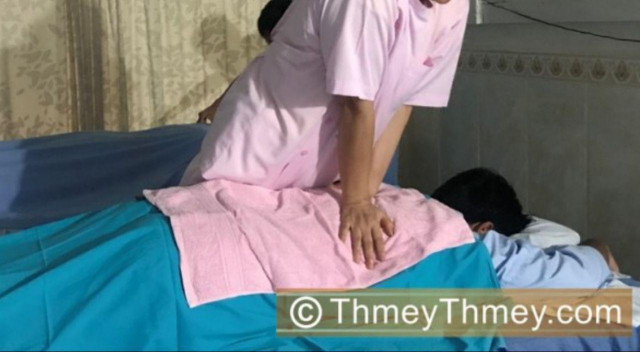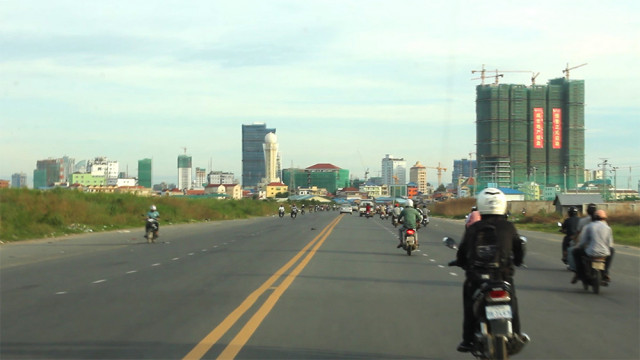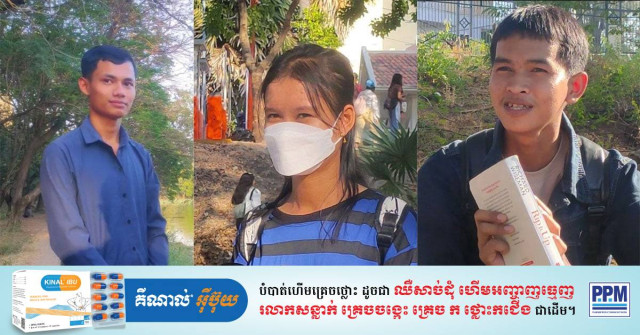Learning STEM to Leave Positive Footprints on Society
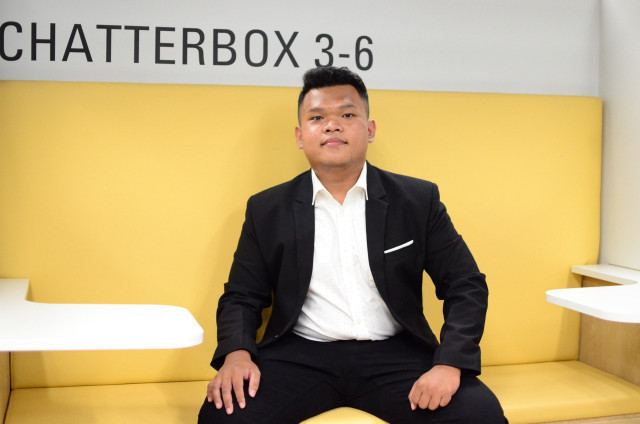
- By Kheav Moro Kort
- September 8, 2022 3:44 PM
As Cambodia embraces Industry 4.0, science, technology, engineering and mathematics (STEM) are gaining popularity. Several STEM initiatives are being taken to help Cambodia keep up with technologically advanced countries. Sin Sidavid, a fresh graduate in management of information systems from Paragon International University, shares his perspective and his experiences.
Kheav Moro Kort: What are the barriers to entering STEM fields and being a STEM student?
Sin Sidavid: In the past two decades, we have seen a rapid increase in the popularity and demand in the STEM field around the world. But despite its hasty growth, STEM is certainly not for everyone. STEM is a field that revolves around science, technology and engineering with mathematics being its core foundation, which can be quite challenging for those students who lack the technical ability. To ensure success in STEM, students need skills such as critical thinking, problem solving, analytical skills, and innovation skills. In spite of all the challenges, I do believe that all those skills can be learned through time.
Kheav Moro Kort: Management of information systems (MIS) is a challenging major. Why did you choose it? What inspired you to do so?
Sin Sidavid: I decided to pursue my passion in this major in STEM despite the challenges and adversities because at an early age, I have always wanted make an positive impact on society, and with STEM, I believe that I can use the knowledge I learn to help improve people’s lives at scale.
Kheav Moro Kort: Since you studied this subject, do you think STEM is popular among Cambodian students?
Sin Sidavid: Although STEM is one of the most difficult areas to succeed in due to its technical prerequisites, we have seen a steady increase in its popularity among Cambodian students, especially in the past four to five years. We have also witnessed a number of students enrolled in STEM-related courses spike up in recent years across all universities and programs nationwide. These increases are mainly due to the efforts from the government strategic pland which has helped push Cambodia towards the advancement of Industry 4.0.
Kheav Moro Kort: Do you think our STEM education here is on par with other countries, for example ASEAN states?
Sin Sidavid: From my perspective as a STEM student in Cambodia, I think our STEM education is not on par with other ASEAN states yet, but we are not far behind. We have many young and passionate youths whose talents are yet to be cultivated.
_1662626883.jpg) Sin Sidavid said he decided to pursue my passion in this major in STEM despite the challenges and adversities. Photo provided
Sin Sidavid said he decided to pursue my passion in this major in STEM despite the challenges and adversities. Photo provided
In the past decade, we have seen heavy investment from the Ministry of Education, Youth and Sport in our education system, especially STEM.
At our current pace, I believe that in a few years, we will be surprised at how good our STEM education can be.
Kheav Moro Kort: Do you have any extracurricular activities you integrate your knowledge into developing a STEM product (web, software, etc.)
Sin Sidavid: Throughout my journey into the field of STEM, I am fortunate enough to have worked on some interesting and impactful projects with amazing people from enterprise solutions to social projects. The most recent one is my social enterprise known as “Feel the Deal” which I have been working on the past few months with my team.
At Feel the Deal, we run awareness campaigns to reimagine food waste (unsold food) as edible food, which we have partnered with restaurants and food delivery companies to promote its re-use and reduction.
Recently, our team Feel the Deal has been selected to be part of the 2022 batch under UNICEF's program called “Generation Future”, which we have received seed funding from UNICEF Cambodia and support from its partners.
In July 2022, I was granted a scholarship from Khmer Enterprise, a government unit under the Ministry of Economy and Finance to participate in a program organized by the Reactor School in Singapore called the “Reactor EntreConference”.
During the one week stay of the program in Singapore, I have been exposed to the entrepreneurial and venture capital side of Singapore and experienced their startup ecosystem.
Kheav Moro Kort: How does STEM contribute to the development of our society? What is the role of STEM in everyday life?
Sin Sidavid: I think that STEM plays an important role in contributing to the development of our society, as well as in our everyday life. It enables us to innovate and to think critically and creatively especially when it comes to problem solving. As a society we need constant innovation and creativity to advance further and flourish. I could not imagine how a society can thrive and flourish in this modern day without STEM being at its core foundation.
Kheav Moro Kort: People tend to say that MIS and computer science (CS) are male-dominated fields. As a male and an MIS student, do you really think that there is a lack of women in this field compared with other countries?
Sin Sidavid: We have seen an imbalance of females in STEM compared to males and this is not just happening in Cambodia. It is also happening in most developed countries. This is not because females are incompetent in STEM-related jobs compare to males. I have seen and known female friends and colleagues who perform excellently in relevant fields.
I think it is quite hard for women in general to integrate into a male-dominated field, therefore if we can make it more accessible and convenient for women to engage in this field we will see more and more females in STEM education.
Kheav Moro Kort: Do you have any advice to encourage your juniors to engage more with STEM?
Sin Sidavid: Even though STEM is one of the most challenging fields to go into, the rewards behind the efforts are worth pursuing because of the endless possibilities it has in the future. I would like to encourage teenagers, especially young Cambodian students who are planning on pursuing a career in STEM, to put aside their doubt and fear and just go for it because most of the things can be learned if you focus into achieving it.
“There are endless possibilities we, humans, can achieve with science and we are only just getting started”.
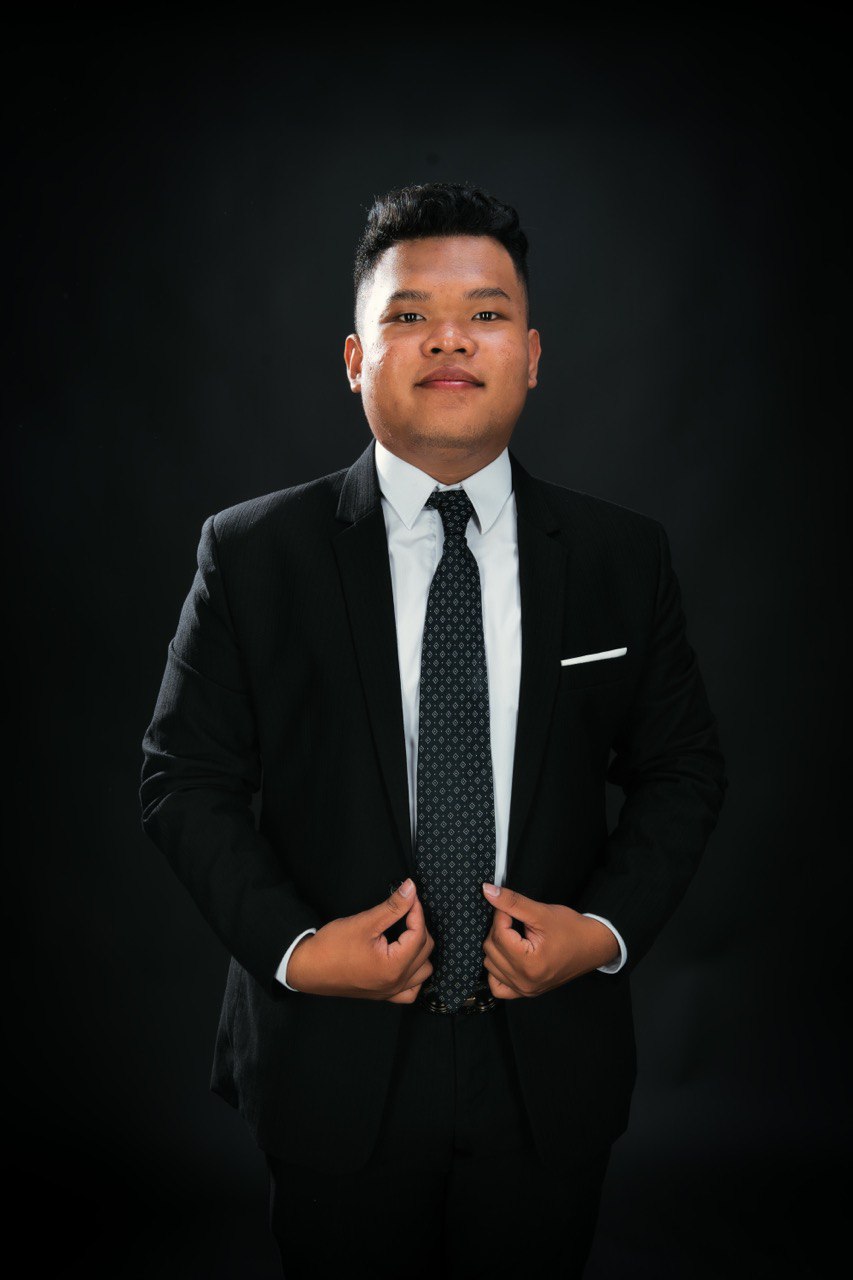 Photo provided
Photo provided






